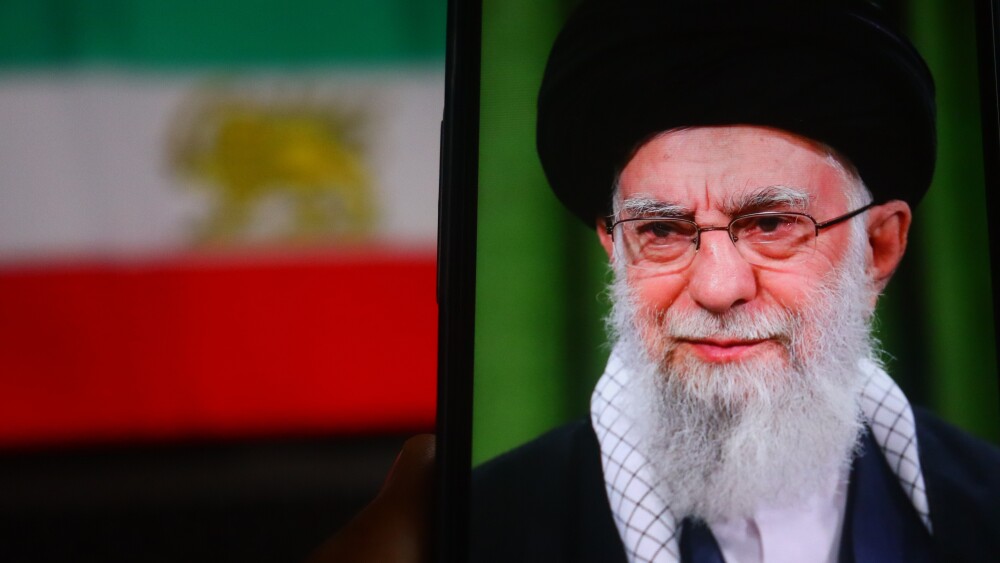Rejecting the Sharm el-Sheikh Peace Summit, the Islamic Republic’s foreign minister Abbas Araghchi declared that Tehran cannot “engage” with countries that sanction and attack Iran. Because Israel will not attend the summit in Egypt, his message clearly targets the United States.
In a post on X, Araghchi recycled the regime’s lofty rhetoric about Tehran’s regional policies—claims that strain credulity. “Iran has always been, and will always remain, a vital force for peace in the region. Contrary to the genocidal Israeli regime, Iran is not after Forever Wars but seeks Forever Peace, Prosperity, and Cooperation.” Araghchi even mimicked President Donald Trump’s habit of putting ordinary words in capital letters.
Iran needs stability, peace, and prosperity more than any other regional country, with the possible exception of Yemen and Afghanistan.
Ironically, Iran needs stability, peace, and prosperity more than any other regional country, with the possible exception of Yemen and Afghanistan. Many regime insiders recognize the country’s precarious economic state and in recent days urged the government to attend the October 13, 2025, summit.
Abdollah Ramezanzadeh, a former government spokesman, openly challenged Araghchi’s logic: “Our foreign minister’s logic is baffling: ‘We won’t engage with those who harmed our nation and still threaten or sanction us.’ But is diplomacy only for friends? How do wars ever end? How are disputes between states resolved?”
A prominent Tehran pundit and former revolutionary from the 1970s addressed President Masoud Pezeshkian directly: “If Iran has been invited to Sharm el-Sheikh, for God’s sake and for the sake of future generations and Iran’s future, do not miss this historic opportunity and attend the conference. One day our foreign policy must finally shift from being ideology-driven to being national-interest-driven. Take this historic step for Iran’s future.”
Fayyaz Zahed, a historian and Reformist political figure in Tehran, also appealed to the president in a post: “Do you remember that after the [June] war I told you that you are living through the most critical period of your life—and perhaps of Iran’s as well? You replied, ‘I know.’ The decision about Sharm el-Sheikh is one of those days. Make us proud…”
Although these voices implored Pezeshkian to attend, everyone understood that the decision did not rest with him. Supreme Leader Ali Khamenei—and possibly the Islamic Revolutionary Guard Corps—determines such matters. A former chairman of parliament’s national security council hinted at this reality: “The president is the highest-ranking diplomat of a country. If Mr. el-Sisi has issued a formal invitation, blocking Pezeshkian from attending would destroy a serious opportunity for de-escalation. After Sharm el-Sheikh, either Iran or Israel will end up on the path to isolation.”
“After Sharm el-Sheikh, either Iran or Israel will end up on the path to isolation.”
The desperation among veteran regime figures has become increasingly visible. Former parliament speaker Ali-Akbar Nategh-Nouri, in an interview on October 12, condemned the 1979 seizure of the American embassy in Tehran that ruptured bilateral relations and locked the two countries in confrontation for forty-six years. He labeled the 444-day hostage crisis “a major mistake,” attributing it to inexperience at the birth of the Islamic Republic. Yet he avoided naming the principal architect of Iran’s anti-American posture: the 86-year-old Khamenei and his civilian and military loyalists, who intimidate insiders and opponents into silence about the Supreme Leader.
Many close to the regime have also begun blaming sanctions profiteers for sabotaging any chance of a deal with the United States. In Iran’s state-controlled economy, insiders monopolize key sectors, receive subsidized foreign currency, and dominate imports and exports. Sanctions enable them to reap vast profits as middlemen and facilitators. This system of profiteering has long served as a cornerstone of the Islamic Republic’s governance model.
Internal tensions and regional isolation have increasingly driven regime heavyweights to attack one another publicly. Many now reveal damaging information to tarnish rivals. Ali Shamkhani, a longtime security official, recently accused former President Hassan Rouhani of knowing from the first moment that the Revolutionary Guard shot down the Ukrainian airliner over Tehran on January 8, 2020, while pretending for three days that it was an accident.
Tehran’s refusal to attend the Gaza peace summit looks even more peculiar given that its regional ally Qatar co-sponsored the deal with Hamas. Saudi Arabia’s absence is also striking, perhaps because Riyadh does not want to endorse a Trump-Qatar initiative. The Saudis appear determined to distance themselves from Gaza, a cause that their Gulf rival has backed heavily.







